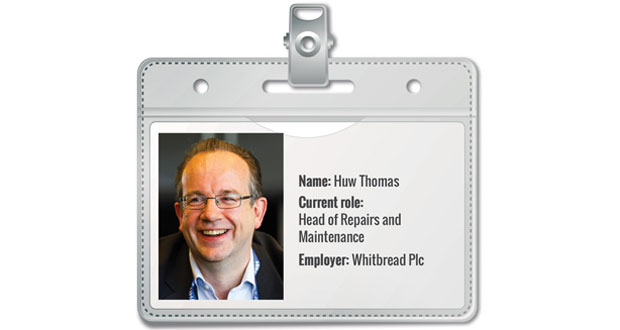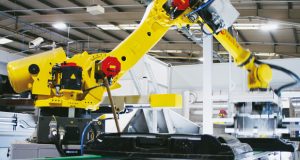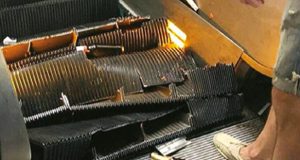Q: How did you progress through the profession to your current role?
I started my career as an electrical apprentice at British Aerospace. I then moved to the England, Wales and Scottish railways, progressing through design engineer and building services engineer roles, before joining a (then) relatively unknown airline, easyJet, in 2000 where I rose to become the airline’s Head of Property and Facilities.
My career at Whitbread began in 2016 where I was recruited as the company’s Head of Facilities. I currently manage superb teams providing refurbishment, energy, maintenance and facilities expertise for 815 Premier Inn hotels and 430 Whitbread restaurants across the UK as well as our head office buildings.
Q: What has changed about your job role since the COVID-19 crisis? E.g. home working, furloughed, redeployed?
At the start of the pandemic we had to close our estate of hotels and restaurants very quickly. Overnight, the job changed from actively managing and improving a large estate to managing the temporary closure of most of our buildings.
We had to be nimble and balance the need to keep our buildings in good order during the lockdown, minimise expenditure and be ready to reopen quickly which we did successfully. With the doors of our hotels and restaurants now open we’re focusing back on our strategic objectives – such as delivering our £40 million refurbishment programme for example.
I continued to work from the office during the pandemic but managing the team remotely.
Q: What have you found most challenging about your job in FM since the lockdown?
Managing the rapid closure and phased reopening of 1,200 hotels and restaurants was a huge undertaking and was certainly challenging at times!
We have also reopened with an enhanced hygiene standard in place – the Premier Inn CleanProtect promise – to help guests’ book and stay with confidence. The new safety standards are in line with both World Health Organisation and the European Centre for Disease Control recommendations, as well as UK government guidance, and involved many changes at our sites which my team and I were actively involved in delivering.
As ever, it was the little things that became stressful. Working alongside contractors, factories and suppliers that were running at reduced capacity due to the lockdown also presented challenges at times.
Q: What qualities do you think are most needed for a successful career in FM?
FM roles involve understanding the needs of a business alongside the needs and wants of your colleagues, customers and suppliers. To really stand out, an interest in business strategy and company culture is important. Managing buildings also involves working alongside many people, so being a ‘people person’ is an advantage.
Technical knowledge is undoubtedly useful, but it can always be ‘bought in’, so I always advocate building transferable skills as a means of succeeding in client-side roles.
Q: What is your organisation doing to ensure the safe return of staff to the workplace?
We’re doing a huge amount as you can imagine. There are some excellent resources on the Premierinn.com website which explain the new Premier Inn CleanProtect enhanced hygiene standard.
We haven’t yet reopened our support centre. When we do, our office-based staff will be working differently with a cap on occupancy, distancing rules throughout, multiple sanitiser stations and screens at receptions (to name a few). Staff will also be working in cohorts to minimise the impact of a ‘test and trace’ call.
We have consulted with teams on these new measures and will continue to engage directly and through dedicated working groups. Everyone has been very supportive so far.
Q: Are you a member of any FM association or body and if so what benefits do you think they provide?
I have previously been a member of the IEE, CIBSE and BIFM and have spoken at their conferences over the years.
Q: Do you believe the pandemic has highlighted the important role of the FM sector and the part its people play in keeping workers safe and buildings clean and maintained?
Absolutely. Premier Inn is renowned for its cleanliness and we need to deliver a spotless room, in line with our CleanProtect enhanced hygiene promise, every time for our guests. We also need to ensure our support centre based teams have confidence to return to our offices safely when we reopen.
Facilities has always been a business-critical activity, but under-investment can occur. The pandemic has shown just how important safe, clean and well-maintained buildings are which is a positive for our profession.
Q: What advice would you give to someone coming into the profession now?
Take time to understand your clients and stakeholders (whether internal or external) and work out what they want, and what the business needs are, before putting systems or programs in place. It is easier to introduce a new facilities strategy, or make the case for budget, if you can demonstrate it is what the business needs.
Q: What do you predict could be the main changes to the FM sector due to the impact of the Coronavirus pandemic?
In the short term, budgets in the sector will undoubtedly come under pressure in a deep recession.
On the plus side, the importance of internal management teams will grow giving businesses control over their cost base. Companies are also likely to review, and invest in, business continuity planning which will present opportunities for FMs.
I also think TFM will need to evolve to accommodate the expected shift towards agile working and more flexible workspaces. Facilities management, like everything else, will need to become more flexible as we adapt to living with COVID-19.





